NNS Editor-in-Chief Sharon McGowan and John Pauly – the new chairman of both the journalism and media studies department at Marquette University and my thesis committee – and I recently joined "Lake Effect" Executive Producer Mitch Teich in the station's studio to discuss the news service's success to date and its opportunities and challenges going forward.
The 16-minute segment concludes with Teich offering the disclaimer that he was interviewed for the thesis. Here's what I wrote in the thesis about "Lake Effect" and the news service:
(WUWM-FM) has given great exposure to the news service’s work after McGowan and NNS publisher Tony Shields appeared on the station’s local public affairs show on April 18, 2011, to promote the launching. The show’s host, Mitch Teich, invited NNS reporters into the “Lake Effect” studio 11 times between September 2012 and December 2013 to discuss their stories for its audience, which is more than 25,000 radio listeners a week and many more via online (live streaming or podcasts). The first time was for Ong’s special report, “Family Day Care Providers Squeezed by Low Ratings, New Rules.” Other news service stories featured on “Lake Effect” ranged from a new program to keep incarcerated juveniles close to home to city nonprofit organizations shying away from the ongoing residency debate to motorcyclists calling for awareness about an increase in crashes.
Teich wrote (in) an email that having NNS reporters share their work on “Lake Effect” is “an ideal situation for us” because “as a daily newsmagazine, our aim is to open a window on things happening across the community to our listeners.” With WUWM also having a small staff, “relationships like this are really vital” for the station to feature “news happening at the neighborhood level.” He added: "It quickly became evident that NNS reporters were doing admirable work in bringing issues to the fore that may not have been on the radar screen for many of our listeners. Almost to a person, the reporters had authentic, interested voices that helped make the stories come alive in a 'reporter’s notebook' fashion. The stories we featured were typically pitched to us through NNS’ editorial staff – a situation that worked well." Teich said more NNS-related “Lake Effect” segments could occur on a “regular, predictable basis,” so long as “they’re timely and strong,” and not just to fill 10 minutes.
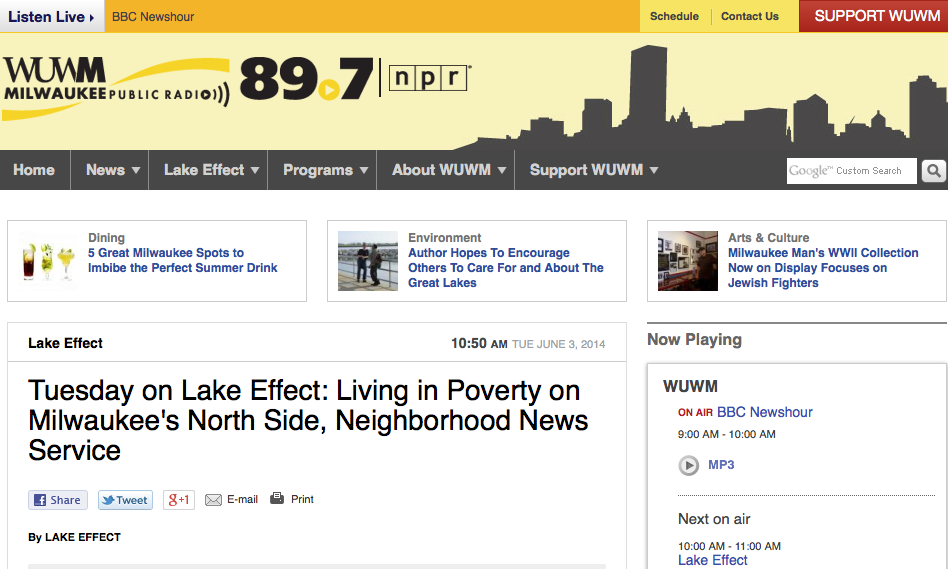
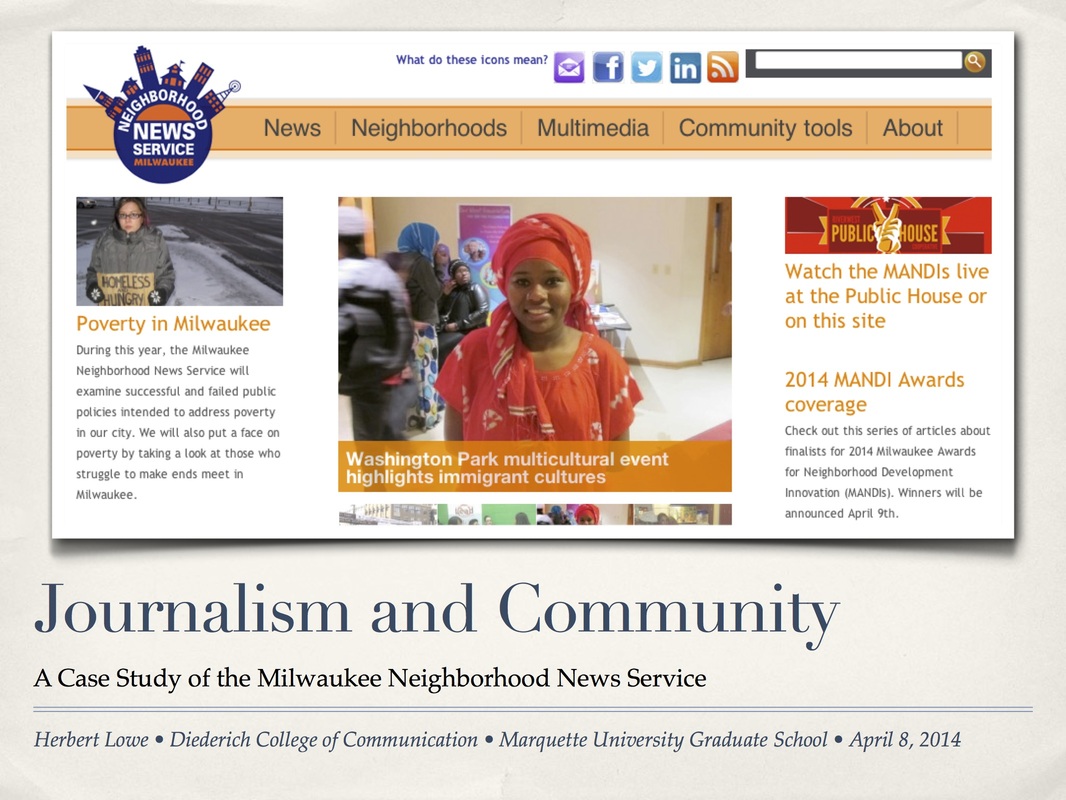
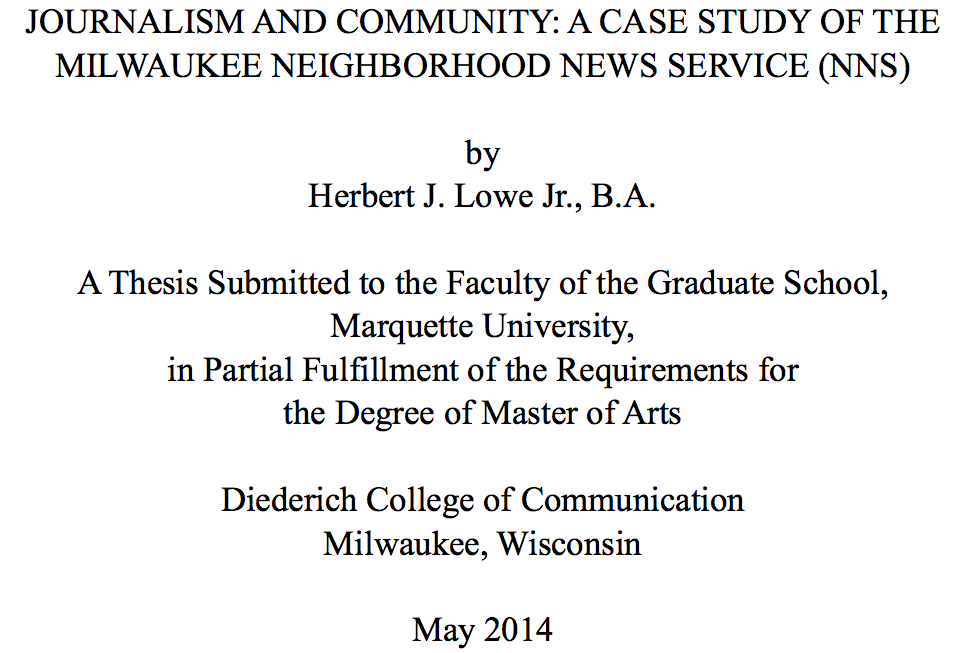
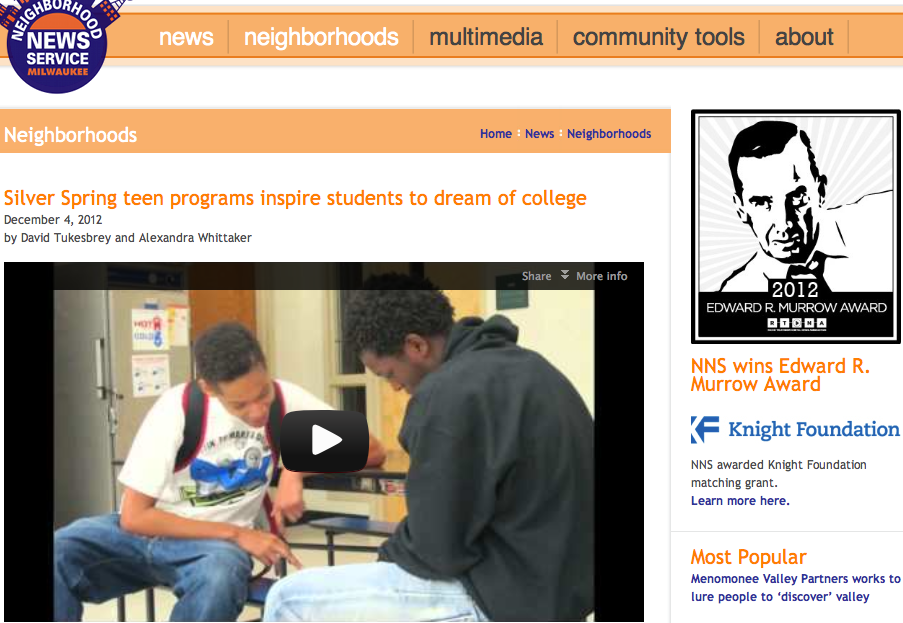
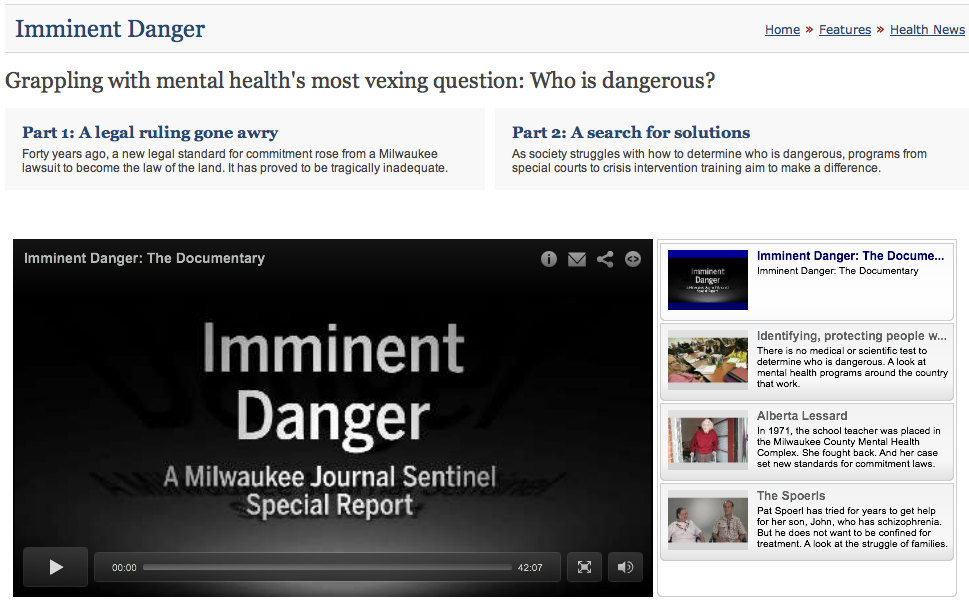
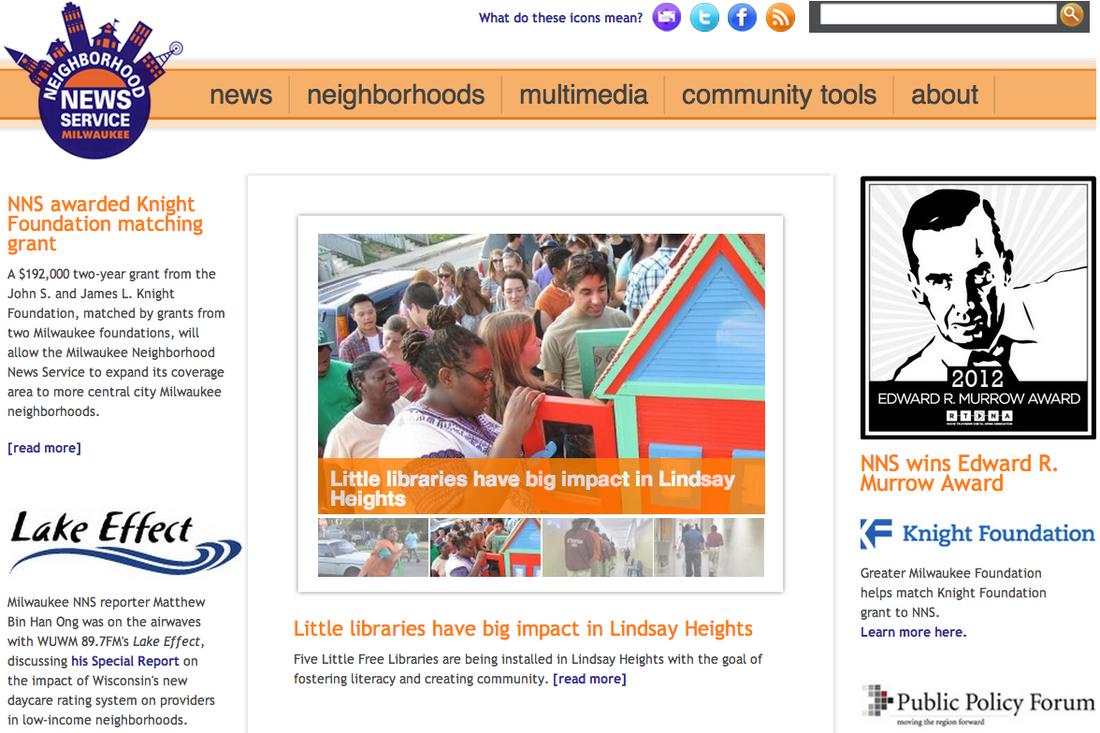
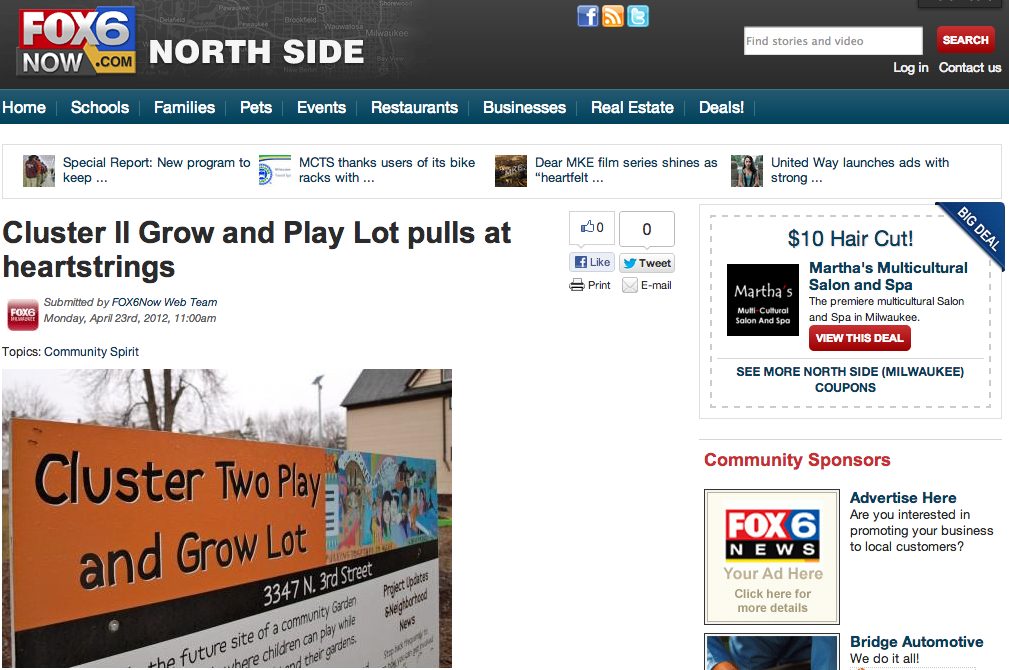
 RSS Feed
RSS Feed
